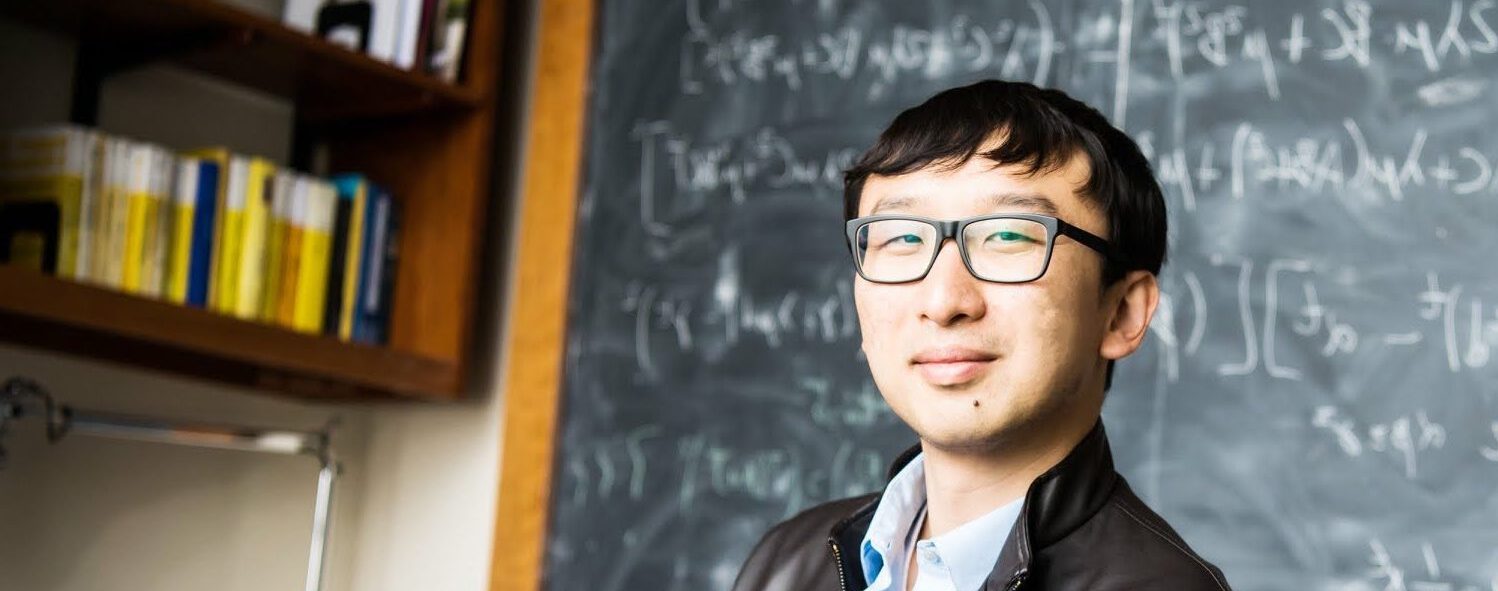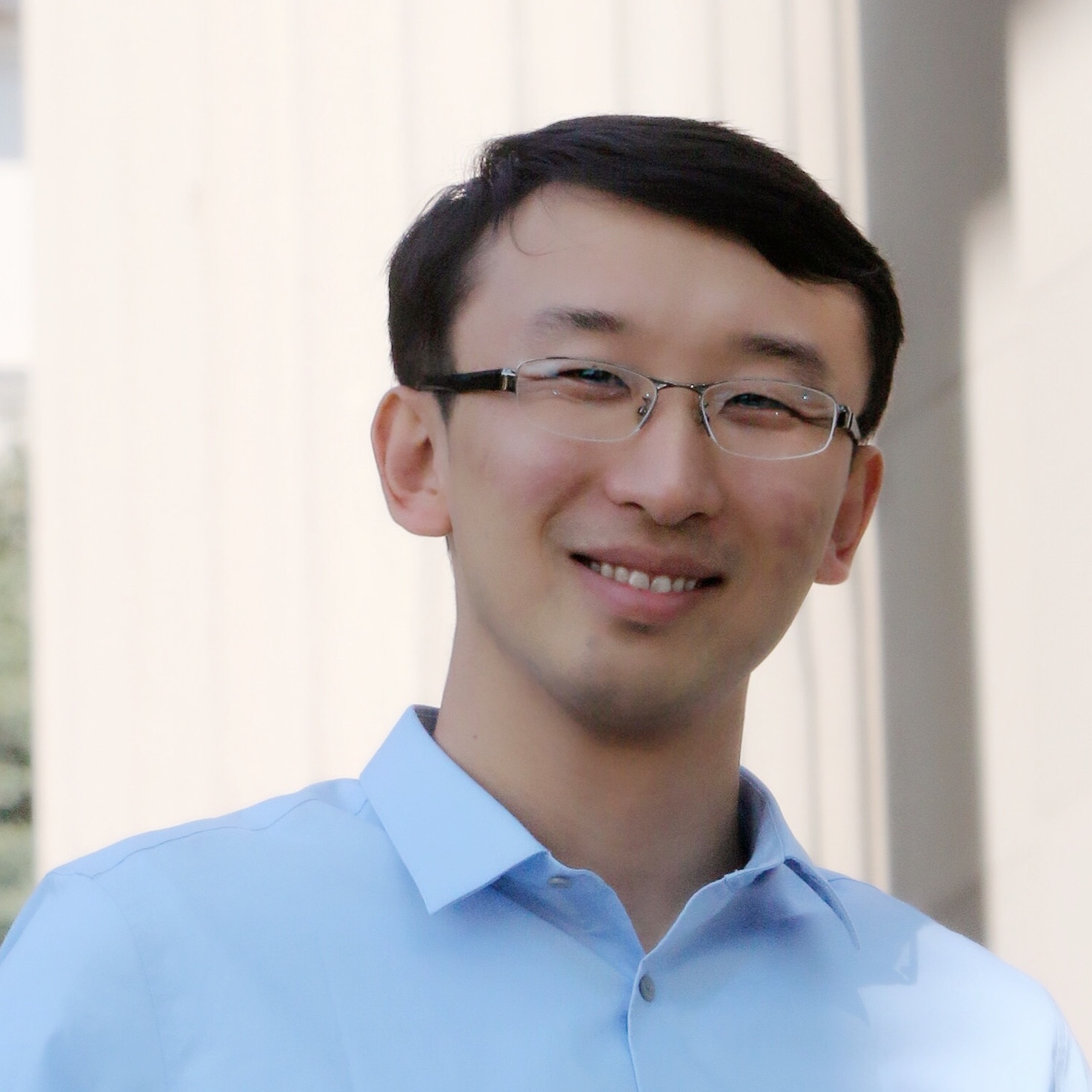
Yufei Zhao, awarded a prestigious Future of Science award by MIT, talks about his maths research and how he mentors other students.
Cambridge exposed me to a new kind of maths I had not encountered before and which I was very much attracted to ... I met leaders in the field who I still talk to to exchange ideas. It had a huge impact.
Yufei Zhao
Yufei Zhao won the MIT School of Science’s Future of Science Award over the summer. It is a prestigious award based on his research contribution to the field of combinatorics – as well as his mentorship, service and outreach.
Recently, Yufei and three undergraduates solved an open problem concerning the number of independent sets in an irregular graph – a problem which was first proposed in 2001. Understanding the number of independent sets – subsets of vertices where no two vertices are adjacent – is considered an important key to unlocking many other combinatorial problems.
Yufei’s other recent research achievements include a contribution to a better understanding of the Green-Tao theorem, which states that prime numbers contain arbitrarily long arithmetic progressions. It won the Society for Industrial and Applied Mathematics’ 2018 Dénes König Prize, given biennially to an early career researcher for outstanding research in discrete mathematics.
In addition, Yufei coached the winning MIT team in the William Lowell Putnam Mathematics Competition, an annual mathematics contest for undergraduates in North America.
An early love of maths
Yufei [2010] says he has loved maths for as long as he can remember. He was born Wuhan in central China and lived there until he was 11 when his parents migrated to Canada.
His primary school education in China gave him a very good, rigorous foundation in maths. “In China being good at maths is encouraged and a badge of social pride,” he says.
It took him a while to adjust to the cultural differences in Canada. That included learning English and adapting to the more relaxed approach to education in Canada. In China he had no free time to explore other interests; in Canada he used that time to explore his interest in maths at his own pace. Maths was not dependent on language abilities and was something he loved, was good at and could do on his own at home.
His school in Toronto were happy for him to progress at his own pace. When he went to high school he started to take part in maths competitions and summer and winter camps where he met like-minded students from other parts of the country. Eventually he won a coveted place on the Canadian team for the International Mathematical Olympiad for three years running, travelling to Greece, Mexico and Slovenia for competitions. “It was a happy time. Maths was my primary interest. I was reading maths books and solving problems,” he says.
Majoring in maths
He was overjoyed to be admitted to MIT to do his undergraduate degree. “It was the place for maths nerds,” he says. He knew several students in the Olympiad who had gone to MIT. He also encountered some Olympiad colleagues at Cambridge where several were Gates Cambridge Scholars.
Yufei knew he would major in maths, but it was popular at the time to do a second major. Computer science was very popular and seemed like a good career option. Yufei graduated four years later with bachelor’s degrees in both maths and computer science, although he says his interest is in theoretical issues rather than the applications of computer science.
MIT gave him his first opportunity to undertake research. In the summer vacation after his second year he took part in a Research Experiences for Undergraduates programme in Duluth, Minnesota. “It was in an isolated spot and so the focus was totally on maths. It kicked off my research career,” says Yufei.
He worked on a research problem in graph theory concerning independent sets, which led to a publication.
The experience motivated him to get more involved in research projects. Over the summers while he was at MIT he also helped coach high school students to take part in maths competitions and became deputy leader of the Canadian team, coaching them in the 2008 International Mathematical Olympiad in Madrid.
Cambridge
As he neared the end of his degree, Yufei applied to the University of Cambridge to do a one-year MASt course in Pure Mathematics. He was keen to explore a different kind of maths programme and get a different perspective. He began the course in autumn 2010 as a Gates Cambridge Scholar and describes the experience as “eye-opening”.
His focus was on combinatorics, a branch of mathematics dealing with combinations of objects belonging to a finite set in accordance with certain constraints, including those of graph theory. Yufei says he has always been interested in combinatorics and that his professors at Cambridge helped to shape his current research programme on extremal combinatorics – a field of combinatorics which studies how large or how small a collection of finite objects, including sets and graphs, can be if it has to satisfy certain restrictions. Yufei took a few courses in the subject at Cambridge which he really enjoyed. “It’s a subject that spoke to me more than most with its problem-solving aspect stemming back to my days in maths competitions,” he says. “I am motivated by the beauty of solving intriguing maths problems.”
At Cambridge he took part in Gates Cambridge community events and was a frequent visitor of the Gates Cambridge Common Room. He has also attended alumni events.
Mentoring
Yufei returned to MIT for his PhD in 2011 to study extremal, probabilistic and additive combinatorics which involved understanding how to use graph theory to better comprehend prime numbers and the links between graph and number theory. During his PhD he did some teaching. He says he loves collaborating with other mathematicians and that he learns a lot from the students he works with. “Younger students often find things more quickly, but a lot of the challenge in maths is coming up with good questions to explore. So older and younger mathematicians complement each other and this leads to new ideas,” he says.
After his PhD Yufei did post-doctoral studies at the University of Oxford where he was the Esmee Fairbairn junior research fellow from 2015 to 2017 and spent a semester at the University of California, Berkeley’s Simons Institute for the Theory of Computing as a research fellow.
Yufei returned to MIT in 2017 as an assistant professor and continued his research. He has also been mentoring students and attending conferences where his work has been well received.
Looking back, he says Cambridge was very influential on his current research trajectory. “It exposed me to a new kind of maths I had not encountered before and which I was very much attracted to,” he says. “I met leaders in the field who I still talk to to exchange ideas. It had a huge impact.”
*Picture credit: Joseph Lee

Yufei Zhao
- Alumni
- Canada
- 2010 MAST Pure Mathemtatics
- Trinity College
Previous Education
Massachusetts Institute of Technology B.Sc. Mathematics 2010












